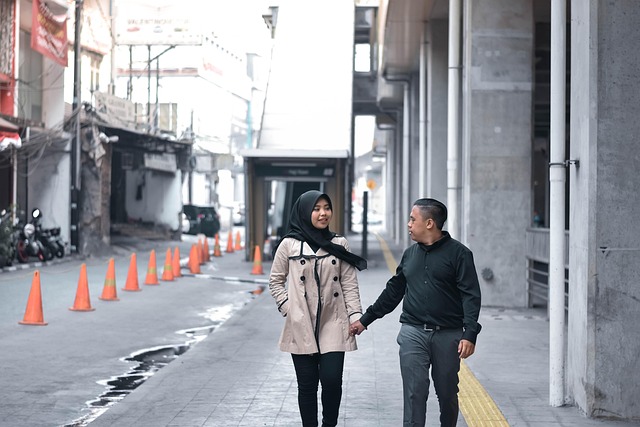
Category: Marital Counseling Gilbert Az
Marital Counseling in Gilbert, Arizona: A Comprehensive Guide
Introduction
In the vibrant city of Gilbert, Arizona, a unique and critical service is transforming lives—marital counseling. This article aims to delve into the intricacies of marital counseling specifically tailored to the Gilbert community, exploring its impact, benefits, and the factors shaping its practice. By understanding this essential service, readers will gain insights into strengthening relationships and the vital role counselors play in Arizona families.
Marital counseling, a form of psychotherapy focused on intimate partnerships, has gained significant recognition as a powerful tool for enhancing communication, resolving conflicts, and fostering healthier marriages. In Gilbert, Arizona, this practice has adapted to meet the diverse needs of couples, offering hope and healing in a supportive environment. This article will provide a comprehensive overview, from defining marital counseling to its global impact and local applications, shedding light on why it matters in today’s society.
Understanding Marital Counseling in Gilbert, AZ
Definition and Core Components
Marital counseling, or couple therapy, is a professional process designed to help married individuals or committed partnerships navigate and overcome challenges in their relationships. It involves a trained counselor who facilitates open communication, provides guidance, and offers strategies to improve conflict resolution, intimacy, and overall relationship satisfaction. The core components include:
- Assessment: Initial sessions focus on understanding the couple’s history, current issues, and individual needs.
- Goal Setting: Couples work together with the counselor to establish specific, achievable goals for their therapy journey.
- Interpersonal Communication: Teaching effective communication skills, including active listening, assertiveness, and conflict resolution techniques.
- Emotional Support: Providing a safe space for expressing emotions, validating feelings, and fostering empathy between partners.
- Behavioral Techniques: Implementing strategies to change unhealthy patterns, improve problem-solving, and enhance intimacy.
- Follow-up Care: Ongoing support post-therapy to ensure sustained positive changes.
Historical Context and Significance
Marital counseling has evolved over the years, with roots tracing back to the early 20th century when psychoanalytic theories began to influence therapy practices. In the 1970s, a shift towards more collaborative and solution-focused approaches emerged, leading to the development of various therapeutic models tailored for couples. Today, marital counseling is widely recognized as an effective method for preventing divorce and promoting healthy marriages.
In Gilbert, Arizona, the increasing awareness of mental health and well-being has led to a growing demand for such services. With its diverse population and strong community spirit, Gilbert offers a unique environment for counselors to make a significant impact on relationships. The significance lies in empowering couples to overcome challenges, strengthen their bonds, and contribute to a happier, healthier Gilbert community.
Global Impact and Trends
International Influence
Marital counseling is not limited to Arizona; it has gained global recognition as a vital component of mental health services. According to the World Health Organization (WHO), nearly 30% of couples worldwide experience marital distress, highlighting the universal need for effective therapy. Many countries have integrated marital counseling into their healthcare systems, recognizing its potential to reduce divorce rates and improve overall well-being.
Regional Trends
- North America: The United States, including Arizona, has seen a steady rise in couples seeking counseling, driven by increased awareness and accessibility.
- Europe: Countries like the UK and Germany have long-established marital counseling services, with recent trends focusing on integrating digital tools for remote sessions.
- Asia: In countries like Japan and South Korea, cultural norms are evolving to encourage more open discussions about marriage and therapy.
Impact on Local Communities
In Gilbert, Arizona, the presence of marital counseling services contributes to a supportive community environment. By addressing relationship issues early, counselors help prevent potential breakdowns that could affect families and communities. This proactive approach is particularly valuable in diverse neighborhoods, where cultural and generational differences may impact communication and connection.
Economic Considerations
Market Dynamics
The marital counseling industry in Arizona, like many other sectors, follows market trends influenced by technological advancements and shifting societal norms. According to a recent report, the global marriage therapy market size was valued at USD 4.5 billion in 2021 and is projected to grow at a CAGR of 7.5% from 2022 to 2030. This growth indicates a growing acceptance of counseling as a legitimate solution for relationship issues.
In Gilbert, local counselors often cater to a mix of clients, including professionals seeking support for work-related stress and couples navigating life transitions. The economic impact extends beyond client fees, as thriving counseling practices contribute to the overall well-being of the community.
Investment Patterns
Investing in marital counseling can be seen as a strategic move for communities. Local governments and healthcare providers recognize the cost savings associated with preventing divorce and its related social and economic consequences. For example, a 2018 study estimated that every dollar invested in marriage education and counseling could save society up to $4 in future public assistance costs.
Technological Advancements
Digital Tools and Remote Therapy
One of the most significant technological advancements is the integration of digital platforms for remote marital counseling. Video conferencing tools allow couples to access therapy sessions from the comfort of their homes, increasing accessibility, especially in rural areas or for those with busy schedules. This trend is particularly prominent in today’s digitally connected world, enabling counselors to reach a broader client base.
Mobile Apps and Online Resources
Mobile apps designed for couples’ communication and relationship building have gained popularity. These apps often include features like couple journaling, shared goals tracking, and interactive exercises to enhance therapy between sessions. Additionally, online resources and digital books provide self-help guidance, making marital counseling more accessible and affordable.
Future Potential
The future of technological advancements in marital counseling looks promising. Artificial intelligence (AI) and machine learning algorithms could personalize treatment plans based on individual needs, while virtual reality (VR) may offer immersive experiences for role-playing scenarios, making therapy more engaging. These innovations have the potential to make counseling even more effective and accessible globally.
Policy and Regulation
Governing Bodies and Guidelines
In Arizona, marital counseling services are regulated by the Arizona Board of Behavioral Health Practice. The board sets standards, issues licenses, and ensures counselors adhere to ethical guidelines. Counselors must complete specific education, training, and supervised practice hours before becoming licensed. These regulations ensure quality and safety in the delivery of counseling services.
Legislative Frameworks
- Client Confidentiality: Laws protecting client privacy are crucial for fostering trust in therapy. Arizona’s counseling professionals are bound by strict confidentiality agreements.
- Consent and Informed Decision-Making: Clients must provide informed consent, understanding their rights and the nature of counseling.
- Ethical Practice: Regulatory bodies outline ethical guidelines, ensuring counselors act in the best interest of their clients.
Challenges and Criticisms
Overcoming Barriers to Access
One of the primary challenges is making marital counseling accessible to all who need it. Stigma surrounding mental health issues and concerns about cost can deter individuals from seeking help. To address this, community outreach programs, sliding fee scales, and insurance coverage are essential. Local initiatives in Gilbert aimed at raising awareness and reducing financial barriers have shown promise in encouraging more couples to try counseling.
Cultural Sensitivity
With a diverse population, counselors must navigate cultural differences and ensure their practices are sensitive to various backgrounds. Effective communication and an understanding of cultural norms are vital to building trust with clients from diverse ethnic, religious, or LGBTQ+ communities. Training in cultural competence is crucial for counselors to provide inclusive services.
Criticized Approaches
Some critics argue that traditional marital counseling may not address the root causes of relationship issues, such as systemic inequality or personal trauma. Integrating more comprehensive approaches, like integrating mindfulness practices or trauma-informed care, can empower couples to navigate complex challenges effectively.
Case Studies: Successful Applications in Gilbert
Case Study 1: The Johnson Family
The Johnsons, a young married couple in their early 30s, sought counseling due to escalating conflicts and a growing sense of detachment. Through personalized therapy sessions with licensed counselor Sarah Wilson, they learned effective communication skills and developed strategies to manage stress together. After several months, the Johnsons reported improved connection, better conflict resolution, and a renewed sense of intimacy. This case highlights how tailored interventions can lead to significant positive changes in relationships.
Case Study 2: Overcoming Cultural Barriers
Maria and Javier, a mixed-culture couple, faced challenges due to differing cultural expectations. Maria, born and raised in the US, had traditional views on marriage, while Javier, an immigrant from Mexico, held more progressive ideas. With the help of counselor Emily Parker, they explored these differences, fostering open dialogue and understanding. The counseling process allowed them to navigate their unique situation, strengthening their bond and creating a supportive environment for their inter cultural family.
Future Prospects: Emerging Trends and Growth Areas
Growing Demand for Digital Services
The post-pandemic world has accelerated the adoption of digital tools in various sectors, including mental health. Marital counseling is no exception, with an increased demand for online sessions and digital resources. This trend presents opportunities for counselors to expand their reach and adapt their practices to modern needs.
Integrative Approaches
There is a growing recognition of the benefits of integrating various therapeutic modalities. Combining elements from cognitive-behavioral therapy (CBT), mindfulness-based practices, and solution-focused brief therapy can offer more comprehensive solutions. Counselors in Gilbert are well-positioned to embrace these trends, providing innovative and effective treatment options.
Community Collaboration
Building partnerships with local organizations, schools, and community centers can help expand the reach of marital counseling services. Collaborative efforts can lead to early intervention programs, workshops, and educational resources, fostering a culture of relationship health in Gilbert.
Conclusion: The Power of Marital Counseling in Gilbert, AZ
Marital counseling in Gilbert, Arizona, is more than just a service; it is a powerful tool for strengthening relationships, healing wounds, and building resilient communities. By understanding its definition, history, global impact, economic significance, technological advancements, policies, challenges, and successful applications, we recognize the vital role counselors play in people’s lives.
As the field continues to evolve, embracing emerging trends and integrating innovative practices will ensure that marital counseling remains relevant and effective. The future looks promising, with potential growth areas including digital accessibility, integrative therapies, and collaborative community initiatives. By investing in and supporting these services, Gilbert can foster healthier relationships and a more connected community.
FAQ Section: Answering Common Queries
Q: How do I know if marital counseling is right for me?
A: Marital counseling is beneficial when you and your partner are experiencing communication issues, conflict, or a lack of connection. If you’re considering divorce but want to explore alternatives first, counseling can help. It’s about taking proactive steps to strengthen your relationship.
Q: Is marital counseling covered by insurance?
A: Many insurance plans do cover marital counseling. Check with your provider and the counseling center for details. Some centers also offer sliding fee scales based on income.
Q: What if we live in a remote area? Can we still access counseling?
A: Yes, technological advancements have made remote or online counseling sessions accessible. Video conferencing allows you to meet with a counselor from the comfort of your home, regardless of your location.
Q: How long does therapy usually take?
A: The duration of therapy varies depending on individual needs and the complexity of issues. Some couples may experience improvements in a few months, while others may require an extended period. Commitment to the process is key to successful outcomes.
Q: Is it just for straight couples? Can LGBTQ+ couples also benefit?
A: Marital counseling is inclusive and designed for all committed partnerships, regardless of gender or sexual orientation. Counselors are trained to provide sensitive and supportive services tailored to each couple’s unique circumstances.











